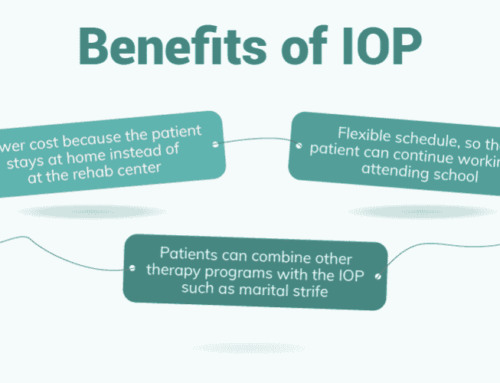When a parent develops an addiction to alcohol, shifts in mood and behaviors altered by the addictive substance can inflict unintentional trauma on each member of the family and the familial unit. If your parent exhibits signs of alcohol reliance, such as irritability, memory loss, drinking constantly, drinking alone, and ranking drinking above other activities, they are likely experiencing internal conflict that manifests as an alcohol addiction.
Know that their addiction does not discount your feelings of emotional trauma. Before you consider taking action to assist your parent, reflect on your feelings, and consider your mental health state. Your suffering is valid, and it does not discredit your love toward your parent. Though it might seem that undermining or hiding your feelings will benefit the situation, stifling your emotions may cause them to worsen.
Don’t Bottle Up Your Emotions
Reach out to a friend or family member with whom you are comfortable sharing your experiences. These people protect your interests, validate your feelings, and encourage your efforts. In addition to a therapist, you may feel inclined to join a community that understands your current position.
There are countless support groups that benefit individuals battling alcoholism as well as their families. Alcoholics Anonymous hosts groups in which families can share their personal experiences and learn from the experiences of others. Whether you turn to a close friend, a therapist, or a local group in a time of crisis, when you are supported, you are strong.
Be Gentle if you Address the Addiction
If you are comfortable approaching your parent and addressing your concerns, you should be aware of your mental state and that of your parent. Just as you did not force your parent to drink, you cannot force your parent to seek help, go to rehab, or stop drinking outright.
Approach calmly, knowing that you cannot change a person’s addictive tendencies with one conversation. Your objective should not be to inform your parent that they have a problem, but, instead, to voice your concerns with their behaviors and give them a platform to share their own experiences.
Do not initiate this conversation if you, your parent, or both you and your parent have been drinking. If the interaction does not prompt your parent to seek help but their condition persists or worsens, reach out to mental health professionals for guidance.
An intervention facilitated by a professional may prove more effective. If you are uncomfortable directly addressing your parent, reach out to another member of your family or a trusted friend who is also affected. They may be able to gauge your parent’s mental and emotional state with greater accuracy, assist you in your mental health journey, and help you think of the next steps for parental care. A mental health professional will always provide strong advice, as well.
If you are ready to start your journey to recovery, call Alta Loma Transformational Services today. We want to offer specialized care that responds to the unique experiences of all individuals, including survivors of sexual violence. You know your needs better than anybody else, and our team of mental health and addiction recovery experts will work with you to develop a unique treatment plan that works for you. At Alta Loma, we want to equip you with the tools you need to enjoy a lifetime of mental, emotional, and spiritual wellness. When your mind and body exist in a healthy environment, you will progress toward recovery. Please call us today at (866) 457-3843 for a consultation.



